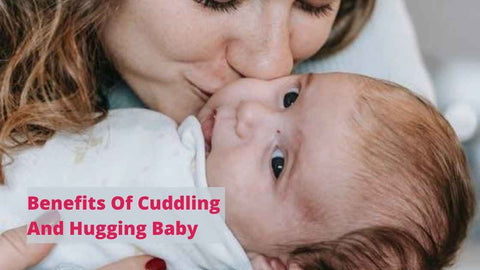How much Sleep do you need a Night based on Age?

Sleep! It can be illusive... especially with our busy schedules. We all hear that sleep is important to our health. But why is sleep important? Is 4 hours of sleep enough?
Sleep plays an important role in our physical and mental health. It enables the body to repair itself and be fit and ready for another day. Getting adequate sleep or rest may also help prevent excess weight gain, heart disease, and increased illness duration. Sleep also recharges the brain, allowing it to learn and make memories.
Ok, so sleep is important. But how much sleep do you really need each night for your age?
How much sleep do you need based on age?
Sleep needs vary by age, and can be affected by lifestyle and health. As babies turn into toddlers, toddlers to school-age kids, kids to teens, and teens to adults, sleep patterns and sleep needs may shift. It's certainly not easy to keep tabs on how many hours you or your child gets, let alone whether that's enough. To determine your actual sleep needs, we need to examine what lifestyle factors are affecting the quality and quantity of your sleep such as work schedules and stress. However, here are some recommendations for hours of sleep:
Newborn and Infants

Newborns and infants need a lot of sleep. Many factors influence how long a baby or infant sleeps, such as whether or not the child is breastfed and how much the baby is exposed to natural light. So how much sleep do newborns need daily? During the first months of life, your baby will sleep no longer than two to four hours at a time, because of the need to feed amongst other needs. At four-to-12 months, these babies need to sleep 12 to 16 hours, including naps.
Toddlers

As your child moves out of the infant stage, starts walking, and becomes a toddler (one-to-two years of age), the total amount of sleep that he or she needs (nighttime sleep plus nap time sleep) decreases a bit to 11 to 14 hours a day.
Pre-schoolers
 While naps are recommended for children through age five, about half (50 percent) of kids stop napping by age four. However, kids aged three-to-five need a total of about 10 to 13 hours of sleep each day. Most of this sleep would be at nighttime though as the mental and physical stimulation from school and social life would impact their sleep.
While naps are recommended for children through age five, about half (50 percent) of kids stop napping by age four. However, kids aged three-to-five need a total of about 10 to 13 hours of sleep each day. Most of this sleep would be at nighttime though as the mental and physical stimulation from school and social life would impact their sleep.
School-aged kids
 Sleep needs decrease slightly from age six-to 12 years old. A six-year-old who slept a solid 10.5 to 11 hours each night might be more wakeful and alert when he sleeps for 10 hours a night when he or she is seven-years-old. Kids this age need between nine and 12 hours per night, but may sleep as few as seven hours.
Sleep needs decrease slightly from age six-to 12 years old. A six-year-old who slept a solid 10.5 to 11 hours each night might be more wakeful and alert when he sleeps for 10 hours a night when he or she is seven-years-old. Kids this age need between nine and 12 hours per night, but may sleep as few as seven hours.
Teenagers
 Teenagers sleeping a lot is normal. This is partly because their bodies and brains are growing. Between the ages of 13 and 18, teens typically need eight to 10 hours of sleep per night. If your teen seems tired and irritable all the time, you might blame these changes on the infamous hormonal swings that accompany adolescence, but they could be signs of insufficient sleep. You’ll also want your teen to take responsibility for establishing good sleep hygiene habits in the minutes and hours before bed.
Teenagers sleeping a lot is normal. This is partly because their bodies and brains are growing. Between the ages of 13 and 18, teens typically need eight to 10 hours of sleep per night. If your teen seems tired and irritable all the time, you might blame these changes on the infamous hormonal swings that accompany adolescence, but they could be signs of insufficient sleep. You’ll also want your teen to take responsibility for establishing good sleep hygiene habits in the minutes and hours before bed.
Adults
 With high school behind us, there are many days - or years - when we feel that sleep is optional or a luxury. From pulling all-nighters at school, or working long hours to build a career or even taking care of an infant or elder relative, we tend to ignore the need for sleep however adults aged 18+ need a minimum of seven hours of sleep for optimal health as we grow older. We don't see it early on but there are many benefits to getting a good night's sleep as we grow older.
With high school behind us, there are many days - or years - when we feel that sleep is optional or a luxury. From pulling all-nighters at school, or working long hours to build a career or even taking care of an infant or elder relative, we tend to ignore the need for sleep however adults aged 18+ need a minimum of seven hours of sleep for optimal health as we grow older. We don't see it early on but there are many benefits to getting a good night's sleep as we grow older.
You may be looking at your schedule and to-do list and wondering 'how the heck am I going to get at least seven hours of sleep a night?' But from someone who lived with mental and physical burnout because of lack of sleep, it definitely helps...you actually feel the difference in your body. Start slowly, using these tips to improve your sleep and in case you need it, here is a handy, little cheatsheet to help you remember the amount of sleep needed for each age group.



